Florida Property Management Firm Insurance
8:30am - 5:00pm Mon-Fri
Will Reply in 15min*
Top Recommended Business Insurance Policies

Index
Contact Us
Phone
Location
Florida’s property insurance landscape is evolving rapidly, offering new opportunities and challenges for property management firms across the state. With a history marked by volatility, legislative reforms in 2024 have begun to reshape the market, improving profitability and attracting new insurers. For property managers, understanding these shifts is crucial to securing the right insurance coverage that protects assets, mitigates risks, and supports sustainable growth.
This comprehensive guide delves into the current state of Florida’s property insurance market, the impact of recent legislative changes, the influence of environmental factors, and practical tips for property management firms navigating this dynamic environment. Whether you manage residential or commercial properties, this article will equip you with essential insights to make informed insurance decisions.
The Current State of Florida’s Property Insurance Market
After years of challenges, Florida’s personal property insurance market is showing promising signs of recovery. According to AM Best, the market reported a combined ratio of 93.1 in 2024, translating into an underwriting gain of $206.7 million. This turnaround is significant, considering the market posted a $174.4 million loss just the previous year.
This improvement is largely attributed to legislative reforms aimed at curbing legal system abuse and fraud, which had previously driven up costs and reduced insurer willingness to operate in Florida. The reforms have not only stabilized the market but have also encouraged new entrants, increasing competition and capacity.
For property management firms, this means better availability of insurance products and potentially more competitive pricing. However, it remains essential to stay vigilant, as the market is still sensitive to factors such as weather-related claims and population growth. As Florida continues to attract new residents, the demand for housing and, consequently, insurance products is expected to rise, making it crucial for property managers to adapt to these evolving dynamics.
Legislative Reforms and Market Dynamics
Florida’s legislative efforts in 2024 have been a material tailwind for insurers. Josie Novak, Senior Financial Analyst at AM Best, notes that these reforms have improved the environment for longstanding market participants and attracted new insurers, effectively increasing capacity. This is a crucial development for property managers who often face rising insurance premiums and limited options.
Moreover, the Insurance Information Institute highlights that eight new property insurers were approved to enter the Florida market in 2024, a clear sign of renewed confidence. This influx helps distribute risk more broadly and can lead to more tailored insurance solutions for property management firms. Additionally, the increased competition may prompt existing insurers to innovate their product offerings, providing more comprehensive coverage options that better meet the needs of property owners and tenants alike.
As the market evolves, it is also important to consider the impact of technological advancements on the insurance landscape. Insurers are increasingly leveraging data analytics and artificial intelligence to assess risk more accurately and streamline claims processing. This shift not only enhances operational efficiency but can also lead to quicker response times for policyholders in the event of a claim. For property managers, embracing these technological changes may provide a competitive edge, allowing them to offer superior service and potentially lower insurance costs to their clients.

Key Challenges Facing Florida Property Management Firms
Despite the positive trends, several challenges persist for property management firms seeking insurance coverage in Florida.
Rising Insurance Costs
One of the most pressing concerns is the rising cost of insurance. Adam Wonus, Partner at Atrium Management Company, emphasizes that increasing insurance premiums are dramatically impacting existing operations and new construction projects. This trend underscores the need for property managers to carefully evaluate their insurance policies and risk management strategies.
Higher insurance costs can affect profitability and may necessitate adjustments in rent or operational budgets. Property managers should work closely with insurance brokers to explore options such as bundling policies or investing in loss prevention measures to mitigate premium increases. Additionally, adopting technology solutions that enhance property monitoring and maintenance can provide a dual benefit: reducing risks and potentially lowering insurance costs over time. For instance, utilizing smart home technology can help in identifying issues before they escalate, thus minimizing claims and fostering a safer living environment for tenants.
Legal Challenges and Claims Disputes
Florida’s property insurance market has historically been plagued by a high volume of litigation related to denied claims. Recent data from the National Association of Insurance Commissioners, compiled by Weiss Ratings, reveals that nearly 13% of Florida homeowners whose claims were denied sued their insurance companies in 2024, up from 12.4% in 2022. This trend signals ongoing tensions between policyholders and insurers.
For property management firms, this means that having clear, comprehensive insurance coverage and documentation is vital. Proactively managing claims and maintaining open communication with insurers can help reduce the risk of disputes escalating to litigation. Furthermore, property managers should consider investing in legal counsel or consulting services that specialize in insurance disputes to navigate the complexities of claims effectively. By fostering strong relationships with legal professionals, property managers can better prepare for potential challenges and ensure that they are equipped to advocate for their rights and those of their tenants. Additionally, educating tenants about their own insurance options can create a more informed community, potentially reducing the number of disputes that arise from misunderstandings regarding coverage and responsibilities.
Environmental Factors and Risk Mitigation
Florida’s unique environmental landscape plays a significant role in property insurance considerations. The state’s vulnerability to hurricanes and storm surges means that risk mitigation is a top priority for property management firms.
The Protective Role of Mangroves
A recent study titled “The spatially variable effects of mangroves on flood depths and losses from storm surges in Florida” highlights the critical role mangroves play in reducing storm surge losses. In Collier County alone, mangroves reduce annual storm surge losses by approximately $67.5 million, with significant benefits observed during hurricanes Irma (2017) and Ian (2022).
Property managers should consider environmental factors when assessing risk and insurance needs. Preserving or restoring natural barriers such as mangroves can be part of a broader risk management strategy that not only protects properties but may also influence insurance premiums positively. Furthermore, the ecological benefits of mangroves extend beyond storm protection; they serve as vital habitats for diverse marine life, contribute to carbon sequestration, and enhance water quality by filtering pollutants. Engaging in conservation efforts can thus yield a dual advantage: safeguarding properties while promoting environmental sustainability.
Population Growth and Increased Exposure
Florida’s population has expanded rapidly, growing by more than 700,000 individuals, or 3.3%, between April 2020 and July 2022. This growth significantly exceeds the national average and contributes to increased demand for housing and commercial spaces.
While population growth drives economic opportunity, it also increases exposure to property risks, especially in coastal areas prone to hurricanes and flooding. Property management firms must factor this into their insurance planning, ensuring that coverage levels reflect the heightened risk profile associated with a growing and densifying population. As urban development continues to encroach on vulnerable coastal regions, it becomes increasingly important for property managers to advocate for resilient building practices and land-use policies that prioritize sustainability. Implementing green infrastructure, such as permeable pavements and rain gardens, can help mitigate flooding while enhancing the aesthetic appeal of properties, ultimately benefiting both residents and the environment.
Practical Tips for Property Management Firms Navigating Insurance in Florida
Given the evolving market and unique challenges, property management firms should adopt proactive strategies to optimize their insurance coverage.
Partner with Experienced Brokers
Working with insurance brokers who have deep knowledge of Florida’s property insurance market can help firms find the best coverage options. Brokers can navigate the complexities of policy terms, exclusions, and endorsements, ensuring that coverage aligns with the specific risks faced by property managers. Additionally, these brokers often have established relationships with various insurers, which can lead to more favorable terms and quicker responses during the claims process. This partnership is invaluable, especially in a state where natural disasters can significantly impact property values and insurance rates.
Invest in Risk Reduction Measures
Implementing risk mitigation strategies such as hurricane-proofing buildings, maintaining natural barriers like mangroves, and conducting regular property inspections can reduce the likelihood and severity of claims. These measures may also lead to premium discounts. Beyond physical improvements, property management firms should consider investing in technology, such as smart monitoring systems that can detect leaks or other issues before they escalate into larger problems. By prioritizing safety and sustainability, firms not only protect their assets but also enhance their reputation among tenants and stakeholders.
Stay Informed on Legislative Changes
Florida’s insurance market is heavily influenced by state legislation. Staying updated on reforms and regulatory changes enables property managers to anticipate market shifts and adjust their insurance strategies accordingly. Engaging with industry associations and attending relevant seminars can provide valuable insights into upcoming legislative changes. Furthermore, understanding the implications of these laws can empower property managers to advocate for their interests and those of their clients, ensuring that they remain compliant while maximizing their coverage options.
Maintain Clear Documentation and Claims Management
Accurate record-keeping and prompt claims reporting are essential to avoid disputes. Given the relatively high rate of litigation following denied claims, clear communication with insurers and thorough documentation can help protect firms from costly legal battles. It is advisable for property management firms to establish a standardized claims process, including checklists and timelines for reporting incidents. This not only streamlines the claims process but also fosters a culture of accountability and transparency. Additionally, training staff on effective documentation practices can further enhance the firm's ability to manage claims efficiently and effectively, ultimately leading to better outcomes for both the firm and its clients.

The Road Ahead: Opportunities and Considerations
Florida’s property insurance market is on a path of gradual recovery, buoyed by legislative reforms and increased competition. For property management firms, this evolving landscape presents both opportunities and challenges.
Improved market conditions may lead to more competitive premiums and better coverage options, but rising costs and legal complexities remain concerns. Environmental risks tied to hurricanes and flooding continue to demand attention, making comprehensive risk management indispensable. As climate change intensifies weather patterns, property management firms must be vigilant, adapting their strategies to account for the increased frequency and severity of natural disasters. This includes not only investing in better infrastructure but also enhancing communication with tenants about emergency preparedness and recovery plans.
By staying informed, partnering with knowledgeable professionals, and adopting proactive risk mitigation strategies, property management firms can navigate Florida’s insurance market with greater confidence and security. Engaging with local experts who understand the nuances of Florida’s regulatory environment can provide invaluable insights, allowing firms to tailor their insurance policies to better fit their unique portfolios. Additionally, leveraging technology, such as data analytics and predictive modeling, can help firms anticipate potential risks and make informed decisions that protect both their properties and their tenants.
For more detailed insights into the market’s recent performance, see the
AM Best report on Florida’s property insurance market improvements.








